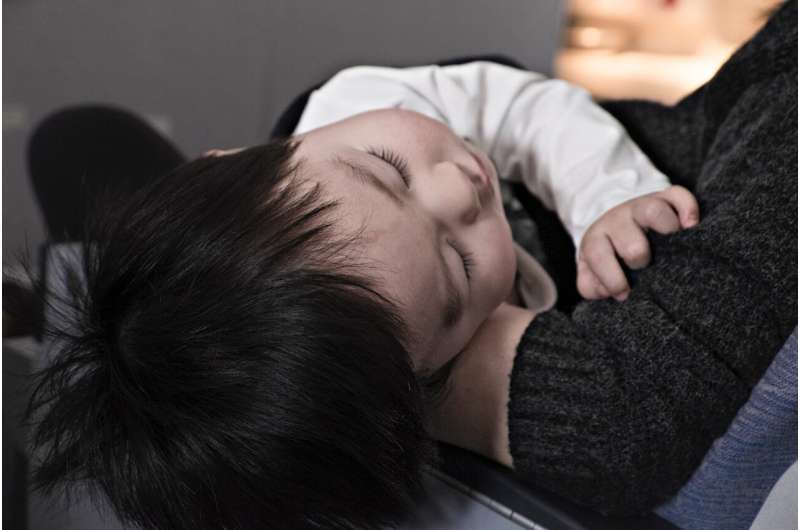
Researchers from ISARIC (International Severe Acute Respiratory and emerging Infection Consortium) pediatric long COVID working group in the UK, Sechenov University and Z.A. Bashlyaeva Children’s Municipal Clinical Hospital in Russia ran the largest study to date on children hospitalized with COVID 19.
The study aimed to discover what the long-term effects are on children and adolescents who have been hospitalized with confirmed COVID-19. They also aimed to discover the risks of children developing long term symptoms after being diagnosed with COVID-19.
According to the study, older children are at greater risk of developing long COVID as well as children with allergic diseases reported by their parents. In the telephone interviews, parents reported mainly fatigue, changes in their taste or smell and sleeping problems, most commonly insomnia.
One in ten children reported persistent symptoms related to two or more organs and/or /systems (for example respiratory or digestive system). One in twenty parents noticed behavioral changes in their children. They noticed their children changed their eating and sleeping habits.
518 of 853 (61%) children hospitalized with COVID-19 were part of the study, as their parents agreed to be interviewed. Only a quarter had signs of long COVID.
The term “long COVID” is used when people infected by COVID-19, regardless of its severity, develop persistent symptoms for a longer period of time. There is currently no agreed definition for long COVID, but ongoing activities from the WHO may deliver some interim definitions very soon.
To run the study, researchers conducted telephone interviews with the parents of 518 children aged 0 to 18 years old admittedto Z.A. Bashlyaeva Children’s Municipal Clinical Hospital in Moscow, infected with COVID-19 between April and August 2020. The interviewswere carried out for a period of around 8 months after hospital discharge.
They found that a quarter of children and adolescents had persistent symptoms at the time of the interviews. The most reported symptoms were fatigue 10.6% (53/498), sleeping problems 7.2% (36/501), and changes in their taste and/or smell 6.2% (29/467).
The study used the ISARIC COVID-19 Health and Wellbeing Follow-Up Survey for Children, a standardized survey that will allow for this study to be compared with others using the same tools all over the world.
However, the study had limitations and only included hospitalized children within Moscow and there was no comparison group.
Prof Ismail Osmanov, the head of the Bashlyaeva Children’s Municipal Clinical Hospital and the first author on the paper, said, “Our experience treating children with COVID-19 shows not only that severe disease may occur in children of different age groups, but we also witness short- and long-term consequences of the infection. This obliges us, pediatricians, to hear the voice of patients and their families and carefully investigate potential of COVID-19 sequalae in children.”
Dr. Louise Sigfrid, clinical research fellow from the University of Oxford and ISARIC, said: “This is the first data from one of several international cohorts following up children after COVID-19. The data highlights the risk of long-term sequelae in children and adolescents, and the need for further studies to characterize long COVID in different populations, including children, and etiology to identify children at risk for early prevention and support to improve long term COVID-19 outcomes.Children are already severely impacted by the pandemic, we need to ensure children living with long COVID are being triaged to appropriate diagnostic assessments and care, and not left behind. “
Source: Read Full Article